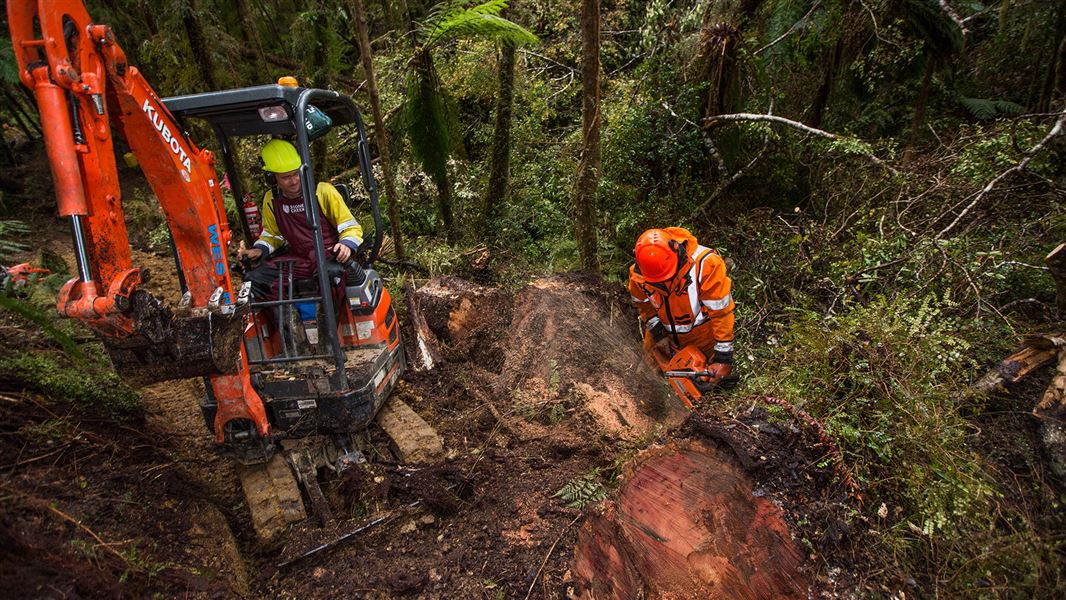DOC's chainsaw use procedures ensure its operations are effective, managed safely, and meet all legal requirements.
They may be useful for others undertaking activities that involve chainsaws.
Purpose of SOP
Using chainsaws is a fundamental part of conservation work. This standard operation procedure (SOP) provides a clear set of rules around the use of chainsaws so that all of our staff, contractors and volunteers can use chainsaws safely in all situations.
DOC has split the use of chainsaws into two parts:
- Base level work – this is work where the major danger is cutting oneself with the chainsaw. Most of DOC's work and most chainsaw staff will be operating at this base level.
- High level work – this is work where the possibility of being injured or killed by the tree is also a reality. Our most skilled people will be operating at this level.
The SOP has four important components
- The introduction of a senior chainsaw operator. This person will act as a coach and mentor in each district or region.
- The use of Competenz as an external party as an assessment agency.
- The emphasis on team leadership. All members of the team should help one another to make good and safe judgements about the way in which they work.
- The link to the New Zealand Certificate in Non-Production Tree Felling (Level 3).
The SOP aligns with the Worksafe NZ Approved Code of Practice for Safety and Health in Forest Operations (ACOP). This SOP was developed in association with Competenz.
Download the chainsaw use SOP
Chainsaw use standard operating procedure (PDF, 953K)
Disclaimer
We are making the document/s available outside DOC to share our best practice. Any use by members of the public is at their own risk and DOC disclaims all liability in reference to that risk.
The document/s were written for DOC staff and may include DOC-specific terms and reference internal documents only accessible to DOC staff. You may need further help to do the work described and also need to get authorisation. Caveats may apply.
